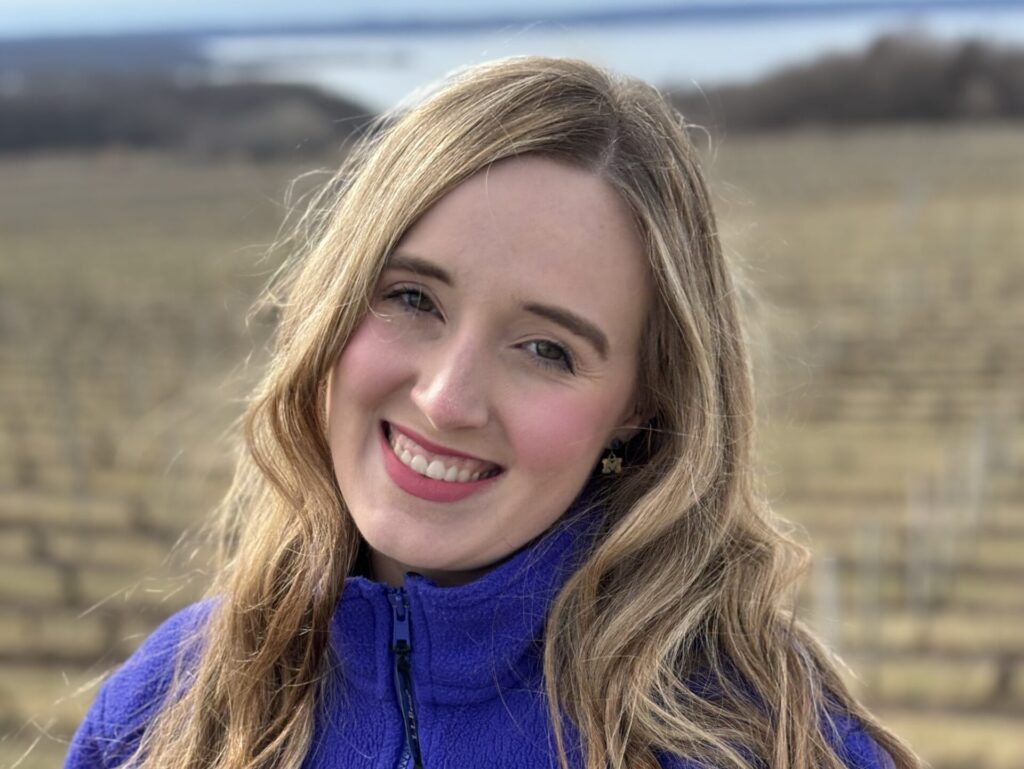Jessie Williams

Master of Urban and Regional Planning
“The small class sizes and professors’ willingness to further discuss topics of interest make the Taubman experience really tailored to students.”
Hometown
Traverse City MI, USA
Degree Program(s)
M.U.R.P.
Expected Graduation Date
May, 2026
Academic Areas of Interest
Land preservation, land use law, environmental planning, historic preservation
Hobbies or interests outside of academia
Hiking, running, listening to podcasts
Why did you choose Taubman College as the right program for you?
After having a great experience at U-M as an undergraduate, majoring in a program in the Environment with a concentration in urban planning, I knew I wanted to continue at U-M for graduate school. U-M prioritizes interdisciplinary education, and being able to engage across areas and learn from people from varied disciplines is valuable to me. As my interest and planned career is in land use law, I aimed to enter the dual-degree JD/M.U.R.P. program with the Law School and Taubman College to further both my planning and law backgrounds. I knew that the coursework at U-M, emphasizing the connection between land use regulation and our environment, would be extremely relevant to my career path and my areas of interest.
What is special or excites you about the Taubman community?
Taubman offers an extremely wide variety of courses, touching on a broad array of planning topics. I’ve gained experience and interest in areas of planning that I’d never encountered or been aware of before, such as regional planning, while also deepening my knowledge in and reshaping how I think about more familiar areas of planning, such as environmental planning. There is truly a course for every planning interest in Taubman.
Describe your experience with faculty and professional staff during your time at Taubman?
Taubman’s faculty are incredibly knowledgeable and truly care about their students. The small class sizes and professors’ willingness to further discuss topics of interest make the Taubman experience really tailored to students. Faculty in Taubman have such diverse backgrounds and expertise, and this benefits students as we’re able to take classes in their areas of emphasis. Additionally, every professor I’ve had has been extremely kind and has had great energy, which provides a great classroom experience!
What benefits have you experienced being part of the University of Michigan?
The resources and support provided at U-M, both in Taubman and the Law School, are incredibly robust. U-M provides abundant free or low-cost resources to students — everything from wellness resources to study spaces. I’ve also been fortunate to be a recipient of U-M’s student scholarship funding – I’m truly grateful to the University and their donors for their support. Lastly, a huge benefit is the community of U-M alumni and supporters — that no matter where you are, you can find someone to say “Go Blue!”
What do you like most about being part of the Ann Arbor community?
Ann Arbor is a great community — I continually feel like I’m learning something new about the town! After living here for school for six years, I’ve developed favorite walking routes, study spots, and coffee shops, but there’s always so much more to explore.
What advice would you give prospective students as they consider Taubman College?
I’d encourage students to look at the course guide available in Taubman, and to see the variety of areas in which students can gain knowledge and practical experience. Additionally, I’d encourage prospective students to make connections with current students here, who can provide advice from their time here — even suggestions as simple as what bus to take to North Campus can be extremely helpful!
What are your plans after graduation?
After graduation, I intend to work in land preservation and land use law in my hometown of Traverse City, Michigan — in the city, on the Old Mission Peninsula where I grew up, and in the surrounding region.





